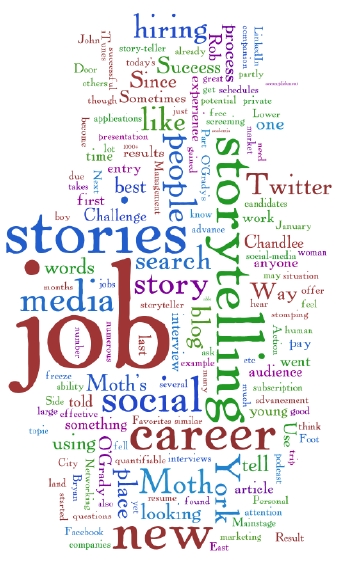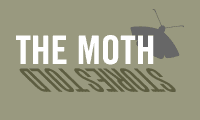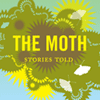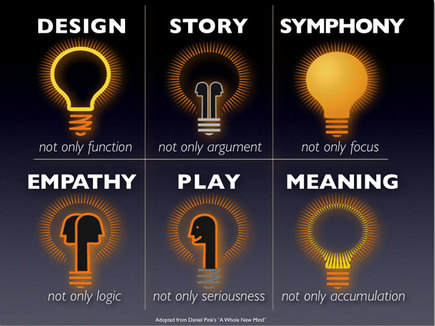Sometimes I feel like a lonely voice crying out in the wilderness about the value of storytelling in the job search and career advancement. Particularly when I was in my PhD program describing my dissertation about using stories in the job search, other scholars would look at me as though I had two heads. That could be partly because I was less than articulate in explaining the topic and partly because job search is not well-explored in academia. I think the topic is considered a little too mundane and unworthy of research.
I am heartened, though, by others who evangelize storytelling in the career and job-search sector. This entry is a roundup of several of them:
- My most significant counterpart is Rob Sullivan. I suspect from his photo (below) Rob is much younger than I am, yet sometimes I think we are twins separated at birth, so passionate is he about storytelling in the job search. He and I even have books with similar titles (His: Getting Your Foot in the Door When You Dont Have a Leg to Stand On; Mine: A Foot in the Door: Networking Your Way into the Hidden Job market). Rob has been touting storytelling in the job search a lot longer than I have; I give him many props for his pioneering role. I am thrilled that I finally connected with him. I am also excited that he will be the subject of a Q&A interview in Phase II of my Q&A series. An article of his that appears in a number places on the Web is Storytelling: The Key to Personal and Professional Advancement. There is so much great story-based advice in this article, from using story to find your career passion to composing an inventory of accomplishment stories. A snippet:
In a very real sense, the single best way to advance in your career
 or build your business is to be a good story-teller. That probably sounds strange, so let me explain what I mean. Im not saying you should become one of those people who can manipulate the facts and talk their way in and out of situations with no regard for anyone other than themselves. We have enough people like that in the world already.
or build your business is to be a good story-teller. That probably sounds strange, so let me explain what I mean. Im not saying you should become one of those people who can manipulate the facts and talk their way in and out of situations with no regard for anyone other than themselves. We have enough people like that in the world already.Instead, I’m suggesting you become a good story-teller by truly appreciating what you have to offer, understanding how it relates to what people need, and finding the most effective way to communicate your potential.
I recommend Rob’s site, Career Craftsman, and blog, Story Sparking.
- Next up is Roxanne Ravenel of The Job Lab, who wrote about Career Success Stories on CollegeRecruiter.com:
By taking the time to draft Career Success Stories, we are better prepared to deal with tough questions that will be posed during the interview process. The Career Success Story has three basic parts:
Challenge — Describe the situation you faced.
Action — What steps did you take to solve the problem or get results?
Result — What was the end situation? (Use quantifiable figures when appropriate)
This is an example of a Career Success Story with quantifiable results:
Challenge — A large percentage of job candidates went through our recruitment process only to turn down the job offer due to pay or potential work schedules.
Action — I adapted the suggested telephone screening dialogue to more fully educate job candidates about pay and work schedules.
Result — The number of job offers that resulted in hiring increased by 35%. My fellow recruiters followed suit with similar results.
- Lindsay Olson joined the chorus with an entry in her eponymous blog that included this paragraph about storytelling in job interviews:
The interview is the company’s opportunity to evaluate your ability to handle its organizational challenges once you have the job. Since the hiring manager may not be the most skilled interviewer, it’s up to you to demonstrate you are up for the challenge. This is why being an effective storyteller is so important.
- Of course, one of the best testimonials for using story in the job search is the job-seeker who actually lands a job through storytelling. I am convinced that increasingly, social-media venues will serve as springboards for people to get jobs. Part of my reasoning is the prediction I’ve seen from numerous experts that job boards will disappear within 10 years — or sooner. What will replace them? In part, social media that enable job-seekers to tell their stories. Here’s an example, from Dan Schawbel’s Personal Branding Blog as told by Chris Kieff:
I found my job on Twitter. …
I spent several months looking for work after losing my job in January 2008. I went the usual route of job sites and resumes, etc. And I started writing my blog, www.1GoodReason.com, which gained me some exposure. The blog is the thing that gained me the best attention and consideration. At the same time I worked hard on Twitter, Facebook, and LinkedIn. Doing everything everyone advises you do to, I was twittering, friending and linking; answering questions etc.
I went on numerous interviews and found 4 different companies that all wanted to hire me for a new position as a “Social Media” person. And each of the 4 companies, when the rubber met the road ran into a hiring freeze. Now maybe this is the new age lie in the current economy but since they were hiring very visible people in the Social Media space it is pretty easy to tell that they are or are not hiring, and they haven’t yet.
So as the last job fell through, and that prospect decided to freeze their hiring and asked me to possibly consult with them, I sent a “Tweet” on twitter, something like this “New Job just fell through, but got a new client”. One of the 1000+ followers I had collected over the past 6 months responded to me with something like, “Hey we’re looking for a social media marketing guy, you interested?”
We started a conversation that lead to a job as the Director of Marketing. Here’s the kicker, I had applied to the job, by sending an email to a job posting they had made a few weeks before. So my resume didn’t make it through the screening process, but my Twitter had gotten through the noise and into the short list.
Did you or anyone you know land a job through social-media storytelling? See today’s sister entry.







